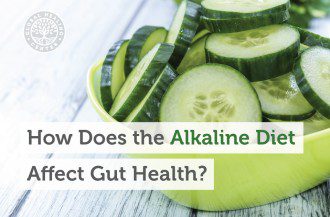15th August 2016
Guest writer for Wake Up World
The alkaline diet is a popular diet aimed at managing acidity levels within the body. The alkaline diet claims you can consume certain foods to adjust your body’s acidity, or pH levels, to improve your health.[1]
The pH scale runs from 0 (acidic) to 14 (basic or alkaline); 7 is neutral.[2] The body uses nutrients and electrolytes to maintain balance, which exists within a narrow pH range. It requires a slightly alkaline environment between 7.35 and 7.45, usually around 7.4.[3]
The human body is a complex collection of systems, organs, and fluids that work together to sustain life. While some systems seem more important than others, each one has a very specific purpose. When the various bits and pieces work together in harmony we call it homeostasis. If just one system is out of balance, homeostasis is disrupted and health and wellness can suffer. Although your body’s pH is important, it is one of many components that contribute to homeostasis.
Studies show the modern diet increases the body’s acidity levels.[4] The alkaline diet suggests that you can manage your internal pH levels, especially in your gut. The gut does have an incredibly important role in your health, but before we get into that, let’s take a closer look at this diet.
What Is the Alkaline Diet?
Also called the acid-ash diet, the alkaline diet is an effort to eat foods with certain pH levels for the purpose of influencing body acidity. The idea makes sense, but it’s important to understand that it’s not the pH level of the food itself that matters, but the effect that food has on the body.[5] For example, a lemon itself is acidic, but once in the body, it encourages alkalinity.
People who follow the diet (including celebrities like Jennifer Aniston, Gwyneth Paltrow and Victoria Beckham[6]) claim to experience benefits such as weight loss, increased energy, and better resistance to certain diseases. However, despite its popularity, the scientific data has not yet proven these claims to be true.
It’s hard to say if the alkaline diet really has any effect on the body’s pH balance. The human body does require regulation and management of pH but it uses internal buffering agents to accomplish this. Your body automatically regulates its own acid-base equilibrium regardless of what you eat.[7]
In other ways, however, the diet does seem to offer real benefits; largely thought to be the result of healthier eating in general, as the alkaline diet tends to encourage foods that are a good source of important nutrients and antioxidants. Research suggests such a diet helps support normal hormone levels, bone health, and muscle mass.[8]
Does the Alkaline Diet Work?
To determine if a diet “works,” it’s important to establish the specific goals and indicators of success. Is it an attempt to lose weight? Gain energy? Build muscle?
From a purely nutritional standpoint, the alkaline diet is strong. It centers heavily around fruits and vegetables. Researchers suggest the absence of these foods in people’s diets is what contributes to many of today’s health problems.[9, 10] Do keep in mind, however, that any diet that includes natural foods will better support your health than a diet that doesn’t. But, eating healthy, natural foods, not a change in acid levels, is what appears to prompt the benefit.
Another goal of the alkaline diet is to slow or stop osteoporosis. It’s based on the acid-ash hypothesis of osteoporosis. This hypothesis is that a diet high in proteins and grains and low in potassium causes bone loss. Some studies suggest men and women with higher blood acidity have a higher rate of bone loss.
Unfortunately, research doesn’t seem to support the claim. Studies do not show that the alkaline diet prevents calcium loss from osteoporosis.[11] Recent research shows collagen cross-linking, a part of bone formation, has a more direct role in osteoporosis.[12]
The bottom line is that your body is a complex system. Vitamins, minerals, fatty acids, and other nutrients affect many different systems. Before you start a diet, consider how it measures results.
Measuring the Diet’s Results
Advocates for this diet claim its success can be determined by the pH of urine. It’s true that the food you eat changes the pH of your urine. Meats and cheeses, for example, make it more acidic. Fruits and veggies make it less.[13]
However, urine acidity alone is not an accurate test. The acid-alkaline status of your body is much more complex than a simple urine test can reveal and a study published in the British Journal of Nutrition suggests urine pH may be an unreliable measurement.[14]Urine only tells you how much acid you’ve excreted. It doesn’t provide complete information on the internal pH levels throughout your body.[15] You have a lot of different fluids in your body and they all have different pH levels. Urine pH ranges from 4.6 to 8[16]while your blood typically hovers around 7.4.[17]
That said, the alkaline diet may “work,” just not in the way you might think, or want. Again, it’s hard to go wrong eating a lot of fruits and vegetables!
Potential Benefits of the Alkaline Diet
Your body keeps tight control over your acid-alkaline levels. The foods you eat may alter urinary acid levels, but do little to alter your pH otherwise.[18] The alkaline diet may not live up to its claims with respect to influencing acidity, but that doesn’t mean it doesn’t make good dietary recommendations. To the contrary, it promotes many natural, organic plant-based foods high in vitamin C, selenium, iron, and zinc; all of which support gut health and the immune system.[19] Spinach and almonds, cashews, and peanuts contain kidney-stone-preventing oxalates.[20] Sweet red peppers, broccoli, and carrots offer large amounts of vitamin A. This promotes healing and recovery in your skin, especially from conditions like acne.[21]
Many of the foods suggested by the alkaline diet provide nutrient-dense, low-calorie alternatives to traditional dietary choices.[22] Lower calorie foods can improve energy levels and support a healthy body weight.[23] When you cut out foods high in omega-6 fatty acids, you reduce your levels of arachidonic acid, which causes the inflammation associated with heart disease and joint pain.[24] An alkaline diet also encourages you to avoid processed foods and refined sugars, neither of which offer any nutritional benefits and both of which are common causes of insomnia. Eliminating them from your diet can help you get deeper, more restful sleep.[25]
The “efficacy” of the alkaline diet has nothing to do with your pH levels but is rather all about the many benefits of eating organic food. The nutrients delivered have a far greater impact on your health than the pH of your urine. Nutrition affects your gut health and overall wellness more than any other factor.
Role of Nutrition in Health and Wellness
Gut health has a tremendous influence on your overall health; that’s why regular cleansing is so important — to remove toxins and encourage your gut to be in good, working order. Cleansing supports the many systems in your body that are designed to work together and strengthen each other. Their functioning in harmony is the definition of wellness. When you provide your body with adequate nutrition, whether it’s labeled as “the alkaline diet” or otherwise, you’re encouraging a harmonious environment that’s best suited to experience homeostasis.
The Diet We Recommend for Gut Health
Nutrition and cleansing can support each other and are two of the most important things you can do for your wellness. If you’re looking for a plan for healthy eating, I recommend the Body Cleansing Diet, which I believe is the best eating plan for the average person to keep their body healthy and clean. It consists of raw, organic fruits and vegetables, and the benefits are many — incredible nutrition, toxin removal, and a healthy gut environment. (Check out the Body Cleansing Diet here.) You might notice similarities between the Body Cleansing Diet and the alkaline diet. I didn’t aim for that when I created this program, but foods thought to help you maintain a pH balance also happen to be the same as those that best cleanse and nourish your body.
No matter what you eat, try to understand the role of nutrition in health. Food is fuel. You wouldn’t put bad gas in your car, so don’t put bad food in your body.
What tips do you have for healthy eating? Leave a comment below and share your thoughts.
References:
- “What Is PH.” Brooklyn College. Brooklyn College, n.d. Web. 24 Mar. 2016.
- “What Is PH?” EPA.gov. United States Environmental Protection Agency, 22 Feb. 2016. Web. 24 Mar. 2016.
- Waugh A, Grant A. Anatomy and Physiology in Health and Illness. 10th edition. Philadelphia, Pa, USA: Churchill Livingstone Elsevier; 2007. Print.
- Pizzorno, Joseph, Lynda A. Frassetto, and Joseph Katzinger. “Diet-induced Acidosis: Is It Real and Clinically Relevant?” British Journal of Nutrition Br J Nutr (2009): 1. Web.
- Bliss, Rosalie Marion. “Plant Foods for Preserving Muscle Mass.” USDA. United States Department of Agriculture, 23 May 2008. Web. 24 Mar. 2016.
- “Top Diets Review for 2016.” NHS Choices. GOV.uk, n.d. Web. 24 Mar. 2016.
- Caroline, Nancy L., Bob Elling, and Nancy L. Caroline. Nancy Caroline’s Emergency Care in the Streets: 7th Edition. Burlington, MA: Jones and Bartlett Learning, 2013. 347-49. Print.
- Schwalfenberg, Gerry K. “The Alkaline Diet: Is There Evidence That an Alkaline pH Diet Benefits Health?” Journal of Environmental and Public Health 2012 (2012): 727630. PMC. Web. 24 Mar. 2016.
- Katz DL. Plant Foods in the American Diet? As We Sow…. The Medscape Journal of Medicine. 2009;11(1):25.
- Guenther, Patricia M., Kevin W. Dodd, Jill Reedy, and Susan M. Krebs-Smith. “Most Americans Eat Much Less than Recommended Amounts of Fruits and Vegetables.”Journal of the American Dietetic Association 106.9 (2006): 1371-379. Web.
- Fenton, Tanis R., Andrew W. Lyon, Michael Eliasziw, Suzanne C. Tough, and David A. Hanley. “Meta-Analysis of the Effect of the Acid-Ash Hypothesis of Osteoporosis on Calcium Balance.” Journal of Bone and Mineral Research 24.11 (2009): 1835-840. Web.
- Saito, M., and K. Marumo. “Collagen Cross-links as a Determinant of Bone Quality: A Possible Explanation for Bone Fragility in Aging, Osteoporosis, and Diabetes Mellitus.” Osteoporosis International Osteoporos Int 21.2 (2009): 195-214. Web.
- Remer, Thomas, and Friedrich Manz. “Potential Renal Acid Load of Foods and Its Influence on Urine PH.” Journal of the American Dietetic Association 95.7 (1995): 791-97. Web.
- Bonjour, Jean-Philippe. “Nutritional Disturbance in Acid–base Balance and Osteoporosis: A Hypothesis That Disregards the Essential Homeostatic Role of the Kidney.” British Journal of Nutrition Br J Nutr 110.07 (2013): 1168-177. Web.
- Brooks, David W. “Ph Of The Blood – Control Mechanisms.” University of Nebraska–Lincoln. University of Nebraska–Lincoln, n.d. Web. 12 Mar. 2016.
- “Urine PH Test.” Medline Plus. U.S. National Library of Medicine, 2 Nov. 2014. Web. 24 Mar. 2016.
- Kellum, John A. “Determinants of Blood pH in Health and Disease.” Critical Care 4.1 (2000): 6–14. PMC. Web. 24 Mar. 2016.
- De Santo, NG, G. Gapasso, G. Malnic, P. Anastasio, L. Spitali, and A. D’Angelo.“Effect of an Acute Oral Protein Load on Renal Acidification in Healthy Humans and in Patients with Chronic Renal Failure.” Journal of the American Society of Nephrology 8.5 (1997): 784-92. Web. 24 Mar. 2016.
- Kirkpatrick, Kristin, MS, RD, LD. “Eat These Foods to Boost Your Immune System – Health Essentials from Cleveland Clinic.” Health Essentials. Cleveland Clinic, 15 Jan. 2015. Web. 24 Mar. 2016.
- “Diet for Kidney Stone Prevention.” National Kidney and Urologic Diseases Information Clearinghouse. National Institute of Diabetes and Digestive and Kidney Diseases, Feb. 2013. Web. 24 Mar. 2016.
- Pappas, Apostolos. “The Relationship of Diet and Acne: A Review.” Dermato-endocrinology 1.5 (2009): 262–267. Print.
- “Low-Calorie, Lower Fat Alternative Foods.” National Heart, Lung, and Blood Institute. U.S. Department of Health & Human Services, n.d. Web. 24 Mar. 2016.
- Galgani, J, and E Ravussin. “Energy Metabolism, Fuel Selection and Body Weight Regulation.” International journal of obesity (2005) 32.Suppl 7 (2008): S109–S119. PMC. Web. 24 Mar. 2016.
- Sears, Barry, and Camillo Ricordi. “Anti-Inflammatory Nutrition as a Pharmacological Approach to Treat Obesity.” Journal of Obesity 2011 (2011): 431985. PMC. Web. 24 Mar. 2016.
- Zeng, Yawen et al. “Strategies of Functional Foods Promote Sleep in Human Being.”Current Signal Transduction Therapy 9.3 (2014): 148–155. PMC. Web. 24 Mar. 2016.
About the author:
Dr. Edward F. Group III (DC, ND, DACBN, DCBCN, DABFM) founded Global Healing Center in 1998 and is currently the Chief Executive Officer. Heading up the research and development team, Dr. Group assumes a hands-on approach in producing new and advanced degenerative disease products and information.
Dr. Group has studied natural healing methods for over 20 years and now teaches individuals and practitioners all around the world. He no longer sees patients but solely concentrates on spreading the word of health and wellness to the global community. Under his leadership, Global Healing Center, Inc. has earned recognition as one of the largest alternative, natural and organic health resources on the internet.
For more information, please visit Global Healing Center.
Recommended articles by Dr. Group:
- The 9 Best Fermented Foods for Your Gut
- 14 Foods that Cleanse the Liver
- How Turmeric Keeps You Looking Young
- 7 Toxins Harming Your Brain Right Now
- Top 5 Foods for the Pineal Gland
- 6 Things You Must Know About Colloidal Silver
- The Importance of a Kidney Cleansing Diet
- The 9 Best Herbs for Lung Cleansing and Respiratory Support
- 7 Best Foods to Support Kidney Function
- Lung Cleansing With Peppermint Oil
- How Fluoride Damages Pineal Gland Health
- The Top 20 GMO Foods and Ingredients to Avoid – and Why
Please note: All information and statements made are for education purposes and are not intended to replace the advice of a healthcare professional. Neither Global Healing Center nor Wake Up World dispenses medical advice, prescribes, or diagnoses illness.

If you've ever found value in our articles, we'd greatly appreciate your support by purchasing Mindful Meditation Techniques for Kids - A Practical Guide for Adults to Empower Kids with the Gift of Inner Peace and Resilience for Life.
In the spirit of mindfulness, we encourage you to choose the paperback version. Delve into its pages away from screen glare and notifications, allowing yourself to fully immerse in the transformative practices within. The physical book enriches the learning process and serves as a tangible commitment to mindfulness, easily shared among family and friends.
Over the past few years, Wake Up World has faced significant online censorship, impacting our financial ability to stay online. Instead of soliciting donations, we're exploring win-win solutions with our readers to remain financially viable. Moving into book publishing, we hope to secure ongoing funds to continue our mission. With over 8,500 articles published in the past 13 years, we are committed to keeping our content free and accessible to everyone, without resorting to a paywall.









